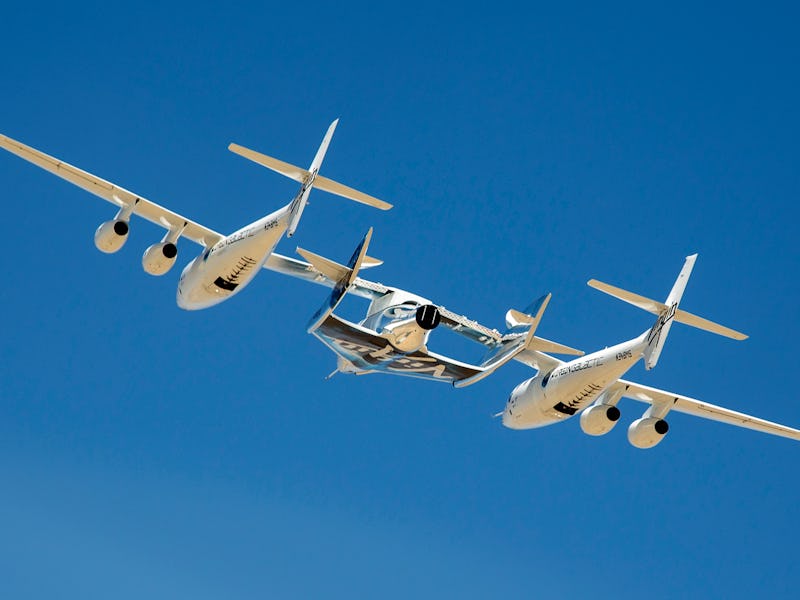Virgin Galactic’s SpaceShipTwo, named VSS Unity, took to the skies Tuesday over the Mojave Desert for another test flight on the company’s journey back to the leading edge of space tourism.
SpaceShipTwo took off attached to the mothership WhiteKnightTwo, with plans for the two planes to disconnect and SpaceShipTwo to gilde down to Virgin Galactic’s runway. Heavy crosswinds forced Virgin Galactic to scrub the gliding test, so the two planes landed about an hour and a half after takeoff.
Virgin Galactic’s gliding flight tests will see how SpaceShipTwo performs with both the fuel tanks empty and with a full load (essentially what it would weigh with fuel, oxidizer, and people), as well as with the weight somewhere in between. When the aircraft is empty, it will reach a mere Mach 0.6. Later flights will reach faster speeds and test safety features.
Virgin’s owner Richard Branson wants to one day charter trips to the suborbital space for $250,000 a person. WhiteKnightTwo will take passengers aboard SpaceShipTwo to 50,000 feet, when SpaceShipTwo will be released. After being released from the mothership, SpaceShipTwo will activate its own thrusters and fly to the edge of space. Like this:
This is the second attempt at perfecting SpaceShipTwo, which debuted in February and made its first test flight in September. The first SpaceShipTwo crashed due to pilot error, an investigation found. One pilot died and another pilot was injured.
Virgin Galactic's VMS Eve carries the VSS Unity (center) during a September test flight
There’s still quite a bit of testing to be done before Virgin Galactic can send people up for space tours. If all goes well with the gliding flights, Virgin Galactic’s next test will fire the hybrid rocket motor in flight. Then they’ll test how the VSS Unity handles bad conditions, called off-nominal testing. It’s not until the aircraft has passed all these tests that astronauts will go aboard for more test flights.
